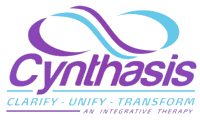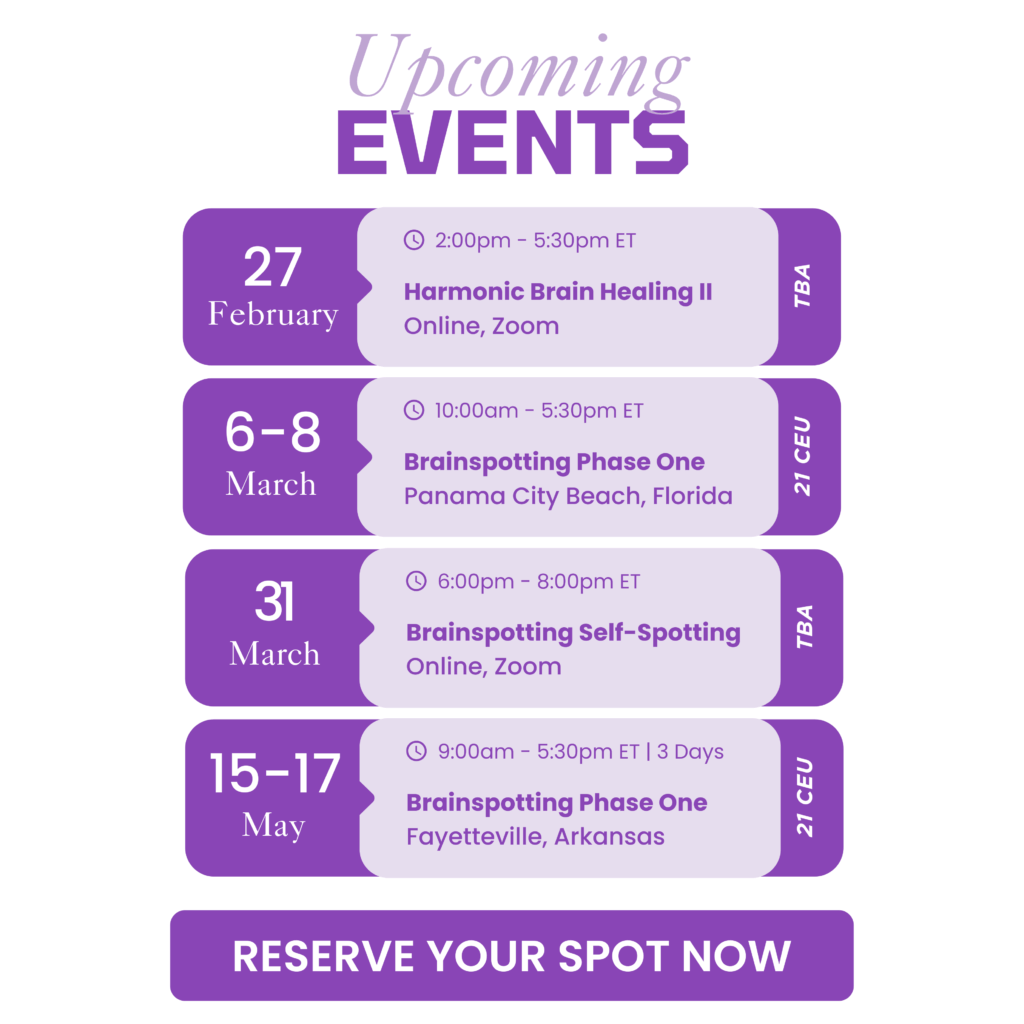
- This event has passed.
Brainspotting Phase One May 13-15, 2022
May 13, 2022 – May 15, 2022

DATES CHANGED TO MAY 13-15, 2022
Brainspotting Phase One IN-PERSON Training – Friday, Saturday, Sunday 9:00 am to 5:30 pm CENTRAL
BRAINSPOTTING: PHASE 1
Brainspotting: Phase 1
Introductory Level
Three-day 21-hour live in-person training.
OVERVIEW
Brainspotting is a brain-based therapy based on the hypothesis that specific eye positions designated as “brainspots” activate and access specific areas of the midbrain that allow for the reprocessing and releasing of core neurophysiological reactions to trauma-related and other psychological experiences.
In addition, brainspotting is built on a model that emphasizes therapist-client presence and attunement in the healing process. As an open and integrative model, brainspotting is adaptable to many different areas of specialization and can be integrated with other treatment models.
In this introductory Brainspotting: Phase 1 training, participants will learn four basic brainspotting techniques. In addition, participants will receive an overview of the:
- standards of care and professional practice for brainspotting practitioners,
- research that supports the primary assumptions of brainspotting; and
- challenges of research and evidence-based treatment for conditions such as Complex PTSD
LEARNING OBJECTIVES
Participants of this introductory level course will be able to:
- Summarize the standards of care and professional practice of the International Brainspotting Association.
- Describe the hypothesized neurological underpinnings of how brainspotting works.
- Summarize the research that supports the hypothesized way in which eye positions activate and accesses midbrain activity.
- Explain the uncertainty principle as it relates to brainspotting.
- Describe the concepts of simultaneous neurobiological and relational attunement.
- Explain the importance of client-therapist attunement during brainspotting.
- Explain how the treatment frame is set and held by the therapist.
- Explain the role of focused mindfulness in brainspotting.
- Discuss the similarities and differences between the activation and resource models of brainspotting.
- Explain the concept of limbic countertransference.
- Demonstrate a basic mastery of the use of the outside window brainspotting technique.
- Demonstrate a basic mastery of the use of the inside window brainspotting technique.
- Demonstrate a basic mastery of the use of the gaze spot brainspotting technique.
- Demonstrate a basic mastery of the use of the resource model of brainspotting technique.
- Assess the appropriate brainspotting techniques for the treatment of Post-traumatic stress disorder, including the Dissociative Subtype, and other trauma-related symptoms.
- Describe two challenges to assessing and providing evidence-based treatment to individuals with Complex PTSD.
APA Relevant Resources
Click here for the agenda and refund policy.
Who is this training for?
Trainings are open to all counselors, psychologists, social workers and others in the healing professions with strong clinical backgrounds, as well as students/interns in the mental health field who are curious and seek to expand their knowledge.
Trainers:
Christine Ranck, PhD, LCSW and Cynthia Schwartzberg, LCSW are Senior Brainspotting Trainers and Supervisors with over 30 years of experience in private practice, Christine in NYC/Murfreesboro and Cynthia in NYC/Atlanta. Close colleagues of Dr. David Grand, discoverer/developer of Brainspotting, they participate in a monthly consultation group with Dr. Grand. They specialize in working with survivors of profound trauma, and in creativity and performance enhancement for athletes, artists and performers, and are internationally known seminar leaders and speakers.
CEs:
R. Cassidy Seminars (academeca.com)


